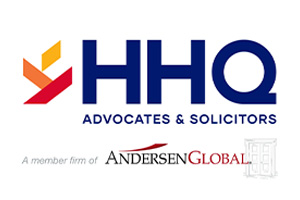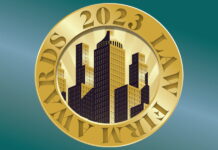INVESTING IN INDUSTRIAL PARKS
Malaysia has just introduced its New Industrial Master Plan (NIMP 2030) aiming to drive the nation’s trajectory as a leader in industrial development, extend domestic linkages to creating wealth and strengthen its global value chain.
Launched on 1 September 2023, the NIMP 2030 identifies 21 sectors the government intends to promote, adopting a mission-oriented approach.
WHY MALAYSIA?
Among many advantages, Malaysia is a globally connected economy with a strategic location in Southeast Asia, complemented by extensive regional partnerships and global trade links.

Partner
Halim Hong & Quek
Kuala Lumpur
Tel: +603 2710 3818
Email: yokewah@hhq.com.my
The gateway to Asean has no less than 14 free trade agreements (FTAs) currently in place, both regional and bilateral. Malaysia is also a signatory of the world’s newest and largest trading bloc, the Regional Comprehensive Economic Partnership (RCEP), incorporating 10 Asean member countries and five regional FTA partners.
Malaysia has also established a reputation as a business-friendly international destination, with more than 5,000 foreign companies from over 50 countries currently operating. They are encouraged by economic and regulatory frameworks with actively engaging supportive policies that ensure rapid, competitive business establishment.
Leveraging this robust financial infrastructure, facilitative business ecosystem and favourable pro-business policies, Malaysia has become a regional and global hub for prominent multinational corporations. These include global manufacturing giants like Huawei, Nestle, Intel, Sharp, Braun, IKEA, Volkswagen and BMW.
Malaysia is home to five economic corridors with favourable infrastructure and investment provisions that promote free trade and provide key business incentives: Iskandar Malaysia; East Coast Economic Region; Northern Corridor Economic Region; Sabah Development Corridor; and Sarawak Corridor of Renewable Energy.
INFRASTRUCTURE, CONNECTIVITY
Malaysia is also committed to continually developing and upgrading its infrastructure, with more than 500 dedicated industrial parks, specialised industrial parks and free industrial zones. These are complemented by expanding telecoms technologies, a growing highway network, efficient seaports and well-recognised international airports.
Port Klang and the Port of Tanjung Pelepas (PTP) are ranked among the world’s top 20 container ports by the World Shipping Council, with Port Klang ranked 12th, and PTP also a regional trans-shipment hub.
With six international airports, another 16 domestic and 18 airport aerodromes accommodate growing passenger demand and facilitate major trade and aviation routes.
EDUCATION AND TRAINING

Business Development Director
Halim Hong & Quek
Kuala Lumpur
Tel: +603 2710 3818
Email: zach.shaw@hhq.com.my
Malaysia significantly invests in education, ranking top among Asean countries in total public expenditure on education by GDP percentage. Government efforts in developing industry-ready talent are reflected in the country’s improving ranking to 45th among 133 countries in the Global Talent Competitiveness Index 2022, compiled by INSEAD University, Google and Adecco.
Industrial training for the private sector is also nurtured by the Human Resource Development Fund (HRDF). Companies in the manufacturing and service industries contributing to this fund are eligible for grants bearing the costs of training their labour forces.
The National Vocational Training Council, under the Ministry of Human Resources, further co-ordinates the planning and development of a comprehensive system of vocational and industrial training programmes for all training providers.
It also continually develops the National Occupational Skills Standards (NOSS), to date covering more than 800 certificate, diploma and advanced diploma qualifications.
LAWS AND REGULATIONS
The Torrens System is adopted to record ownership and dealings of industrial and manufacturing real estate. Registration of title is guaranteed to the proprietor whose name is registered on the document. Where any alienated land is subject by national law to the category “industry”, the land shall be used only for industrial purposes.
Namely, this specifies erection or maintenance of factories, workshops, foundries, warehouses, docks, jetties, railways or other buildings or installations for use, or in connection with, one or more of the following: manufacturing, smelting, power production or distribution, assembling, processing, storage, transport or distribution of goods or commodities, or other purposes prescribed by the state authority.
Owners planning to develop land should ensure the use does not violate the categories, express conditions, implied conditions and restrictions in interest imposed by the state authority.
The Town and Country Planning Act 1976, meanwhile, controls and regulates town and country planning. No development is permitted without planning permission.
The Environmental Quality Act 1974 prevents, abates and controls pollution, as well as protecting the environment against potential waste or pollutants from industrial and non-industrial activity.
The Industrial Co-ordination Act, 1975 co-ordinates orderly development of manufacturing, licensing manufacturing activity.
FOREIGN LAND ACQUISITION
When seeking to acquire real estate, foreign investors are advised to consider the following:
Minimum threshold is required by the state where the land is located. Prior to fulfilling other requirements, always check the minimum threshold of the relevant state.
The threshold also means minimum property purchase price is fixed by the respective state. The foreigner threshold varies from state to state, and is revised from time to time according to circumstances that a state authority deems fit.
For instance, the minimum threshold for a foreigner to acquire land in Kuala Lumpur is currently MYR1 million (USD213,000).
State consent is also required, stipulated under section 433B of national law. Foreign purchasers are required to submit application forms and fees via their appointed lawyer.
The state authority will grant approval after examining all the documents, and may also impose a one-time levy as a condition for approval for non-Malaysian purchasers. Such a levy is currently imposed in the states of Penang, Melaka, Pahang and Johor, with rates varying from each state and also subject to revision from time to time.
Economic Planning Unit approval is also required for all property acquisitions where there is direct acquisition valued at MYR20 million and above diluting ownership of property held by Bumiputera (indigenous people) interest and/or government agency. This requirement also extends to indirect acquisitions of property by other than Bumiputera interest through acquisition of shares, resulting in a change of control of the company owned by Bumiputerainterest and/or government agency having property more than 50% of its total assets, valued at more than MYR20 million.
LEASE AND TENANCY
National law defines “tenancy exempt from registration” as tenancy for a term not exceeding three years, while leases are for a term exceeding three years but limited to a maximum term of 99 years for the whole of the land, and a maximum of 30 years for part of the land.
There is no automatic security of occupation, but parties can negotiate and agree to an exercisable option for renewal of a lease or tenancy prior to expiry of its term.
A registered lease must be registered via the prescribed form. Foreigners wishing to lease property or land are required to apply for state consent.
KEY TAKEAWAY
Malaysia offers a multitude of advantages for investment in industrial parks, from its strategic location in Southeast Asia to its globally connected economy, with numerous trade agreements and a welcoming business environment.
A robust financial system, supportive policies and the presence of multinational giants underscore its status as a premier destination for industrial investment.
Malaysia’s dedication to progressive infrastructure and outstanding connectivity, coupled with its commitment to educational and industrial training, ensures that investors have access to a skilled workforce and top-notch logistical capabilities.
In this dynamic landscape, Malaysia stands as a beacon of opportunity, beckoning investors to become part of its ambitious industrial real estate journey.
By adhering to its laws and regulations, investors can secure their place in the country’s industrial transformation, contributing to its growth and prosperity while reaping the benefits of a truly “Truly Asia” experience.

HALIM HONG & QUEK (HHQ)
Office Suite 19-21-1, Level 21, Wisma UOA Centre
19 Jalan Pinang, 50450 Kuala Lumpur
Tel: +603 2710 3818
Email: hhqkl@hhq.com.my












